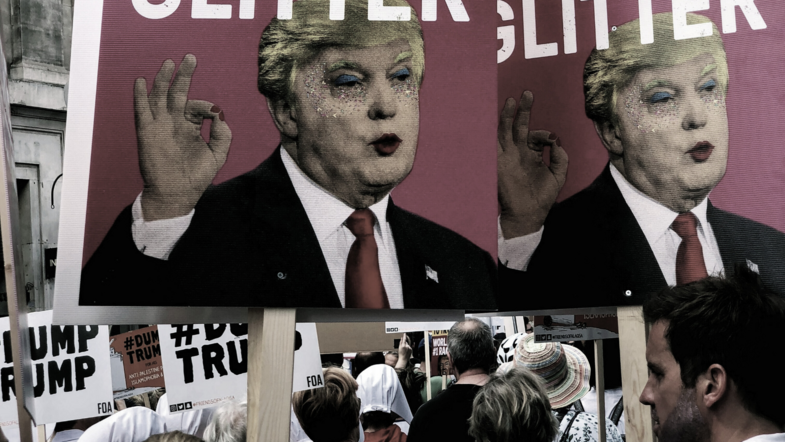GlobeLecture
Trump and the Global Rise of Fascism
Daniel Hedinger (Leipzig) diskutiert den globalen Aufstieg faschistischer Bewegungen mit einem besonderen Augenmerk auf die USA und Donald Trump. Die GlobeLecture ist Teil der diesjährigen ReCentGlobe Jahrestagung.
PD Dr. Daniel Hedinger ist wissenschaftlicher Mitarbeiter am ReCentGlobe und lehrt am Institut für Ostasienwissenschaften. Nach Stationen in Paris, Zürich, Berlin, München, Rom und Kyoto, kam er 2024 nach Leipzig. Er ist spezialisiert auf moderne ostasiatische und europäische Geschichte. Seine Forschungsschwerpunkte umfassen “globalen Faschismus”, die Geschichte des Zweiten Weltkrieges und kolonialer Gewalt im 20. Jahrhundert aus transimperialer Perspektive. Zusammen mit Nadin Heé leitet er das "Zentrum für transimperiale Geschichte".
Zusammenfassung (auf English)
Between the March on Rome in 1922 and the January 6 Capital attack of 2021 lies almost one hundred years. We now cannot help noticing that fascism is celebrating its centenary with an astonishing comeback. It is a comeback in a double sense: as a real-world phenomenon and an academic topic. On the one hand, we are just witnessing the rise of a radical right on a level not seen since the interwar years. Therefore, the ghosts, traumas, and catastrophes that haunted those years are back in the media and the broader public discussion. On the other hand, scholars are debating with increased intensity how all of this relates to interwar fascism and if we should label contemporary right-wing movements “fascist.”
All of this is obviously closely linked to Donald Trump’s rise and the political crisis in the USA. This keynote will explore how the concept of fascism can help us understand current developments. It will examine the interwar period to identify both parallels and differences. While comparisons of Trump to Mussolini or Putin to Hitler are often made, I argue that such simplistic parallels and direct continuities do not necessarily enhance our understanding of contemporary issues or interwar fascism. Instead, we should focus on the processes of mutual and cumulative radicalization, which, during the already interwar years, did not arise in isolation but rather from interconnected national contexts. To do this, the notion of transimperial fascism is key.
Bitte melden Sie sich zur Teilnahme vorab an:
